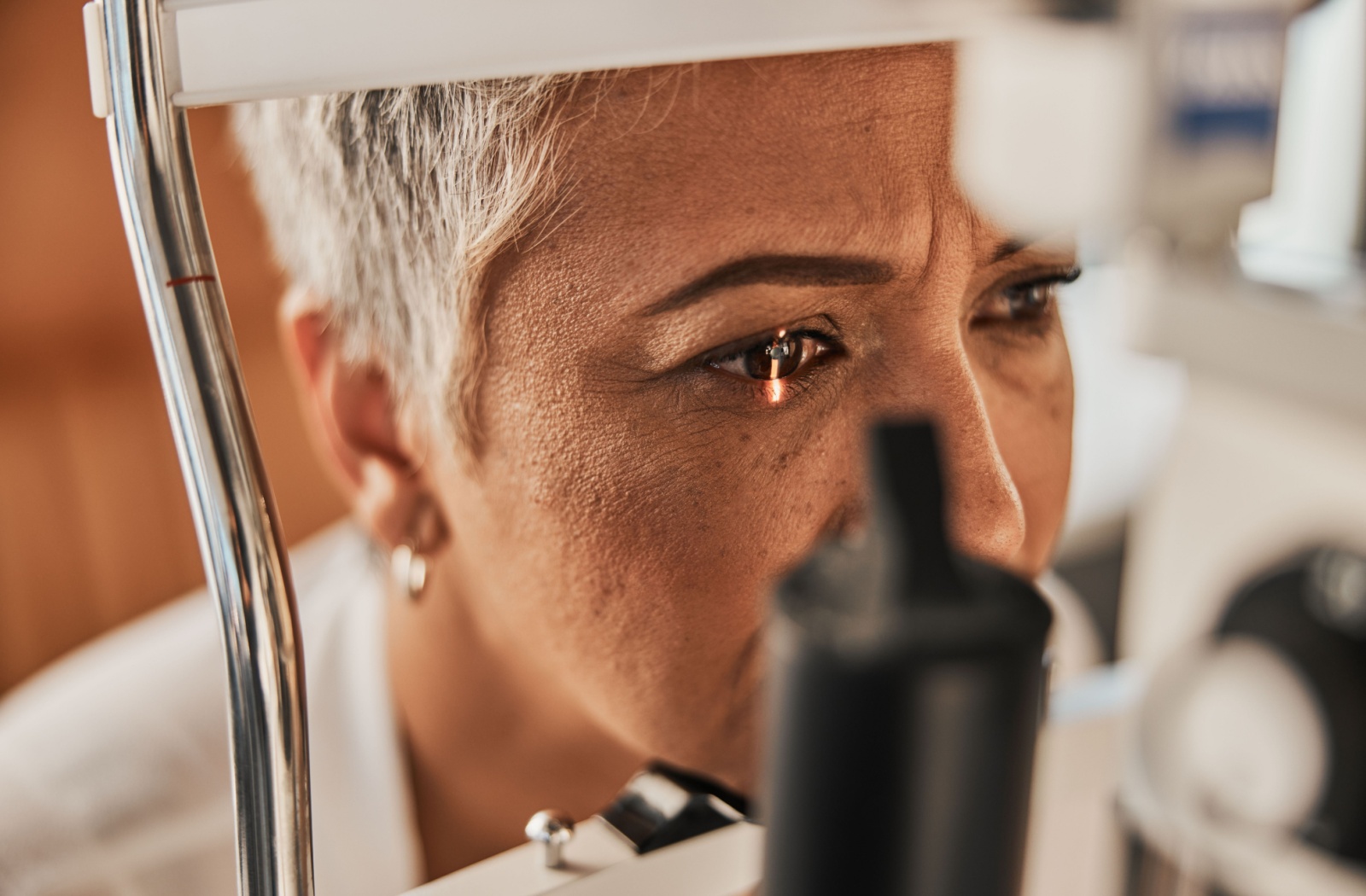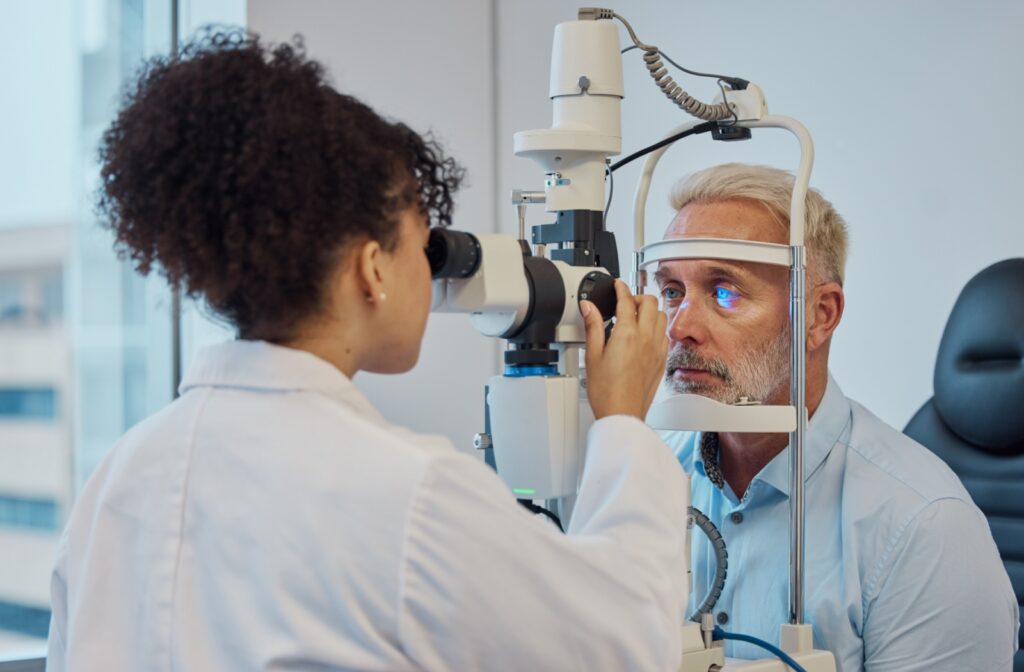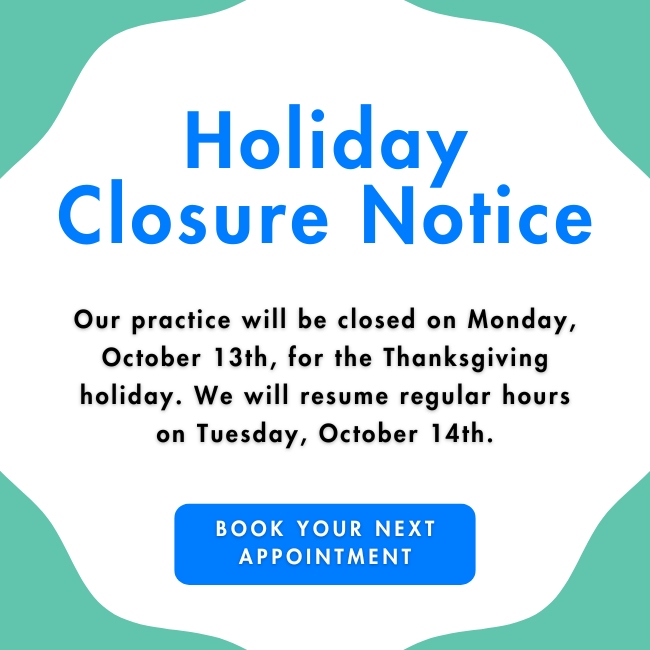Regular eye exams are more important than you think. They aren’t just about vision—they’re about understanding your eyes and preventing possible eye conditions before they cause significant damage. So how often should you get an eye exam?
It’s recommended that adults between the age of 20-64 get an eye exam at least once every 2 years if they have no prior medical conditions that would require a more frequent visit. For children aged 19 and younger, or seniors aged 65 or older, annual eye exams are ideal.
Why Are Eye Exams So Important?
Over the years, your eyes will constantly change. Throughout childhood, children pass certain milestones that signal a healthy visual system is developing. Eye alignment, coordination, clarity—these all can change as a child develops.
More than 80% of a child’s learning is vision-based, so it’s crucial to make sure that a child is reaching these milestones on time; it’s essential for their academic success. This is even more important during back-to-school season, as it lets your child start the school year on the right foot.
And one of the easiest ways to make sure your child is developing their visual system properly? Regular children’s eye exams with your optometrist.
What Can Be Detected During an Eye Exam?
Eye exams are not only important for children, but they are also essential for adults as well. Many eye conditions can show no symptoms until they’ve caused permanent damage to your vision. Scheduling regular comprehensive eye exams can help catch eye conditions long before they become a serious problem.
During an adult comprehensive eye exam, your optometrist can look for many conditions. Below are a few examples::
- Glaucoma
- Cataracts
- Diabetes
- High blood pressure
- Macular degeneration
- Certain types of cancer
Your eyes can give your optometrist an overview of your overall health, making it easier to stay on top of your well-being. You will also get an updated prescription so that you can keep enjoying clear, comfortable vision.
Signs You Need an Eye Exam
You should never leave any visual changes unaddressed. Sudden blurry vision is never a good sign, and it’s often an indication that something unexpected is developing in your eye. If you notice any changes or any unusual symptoms, it’s time to book your next eye exam.
A few examples of symptoms to look out for:
- Frequent squinting
- Eye strain or fatigue
- Difficulty seeing at night
- Persistent headaches
- Dry or watery eyes
- Difficulty focusing on near or distant objects
- Seeing flashes of light or floaters
- Changes in colour perception
These are all signs that something may possibly be wrong and that you need to see a professional.
When to Schedule an Eye Exam
Try to encourage your family to follow these basic guidelines, assuming individuals have no health concerns that would require different guidelines:
- Children should receive their first eye exam around the age of 6 months, then annually every year until they are 19.
- Adults between the ages of 20-64 should schedule an eye exam every 2 years.
- Seniors over the age of 65 should schedule at least an eye exam every year.
If you notice anything unusual, don’t wait for your next scheduled exam; visit your optometrist as soon as you can. Your vision is precious, so don’t put it at risk.
What to Expect from an Eye Exam
When you visit your optometrist for an eye exam, you’ll begin with a quick evaluation. Try to bring along:
- A list of any medication you’re taking
- Notes about any unusual recent symptoms
- Your family and medical history
- Your current prescription for glasses and contacts
This information is valuable; it lets your optometrist tailor the exam to your unique needs. Once this information is reviewed, the exam can begin.
During the Exam
During the eye exam, your optometrist will perform a series of tests to evaluate your:
- Visual acuity (sharpness of vision)
- Eye movement and coordination
- Peripheral vision
- Colour vision
- Intraocular pressure (checking for glaucoma)
- Lens and cornea health
- Retinal health and blood vessels
These assessments help your optometrist gain a proper understanding of what’s occurring inside your eyes. If they’re concerned about anything, you may go through some additional testing.
If you have any questions at any point, feel free to ask. Curiosity is always welcome, and your comfort is a top priority.

After the Exam
Once the exam is complete, your optometrist will discuss the results with you. You’ll receive a new prescription for your glasses, and if your optometrist thinks you need any treatments, they’ll walk you through the next steps.
This entire process typically takes approximately 30 minutes but may take a little longer if you need any additional testing.
Book Your Next Eye Exam
Regular eye exams are a crucial part of preserving your overall eye health. At Northern Lights Optometry, our experienced team is here to help you preserve your vision for years to come. Book your next appointment with us today!





